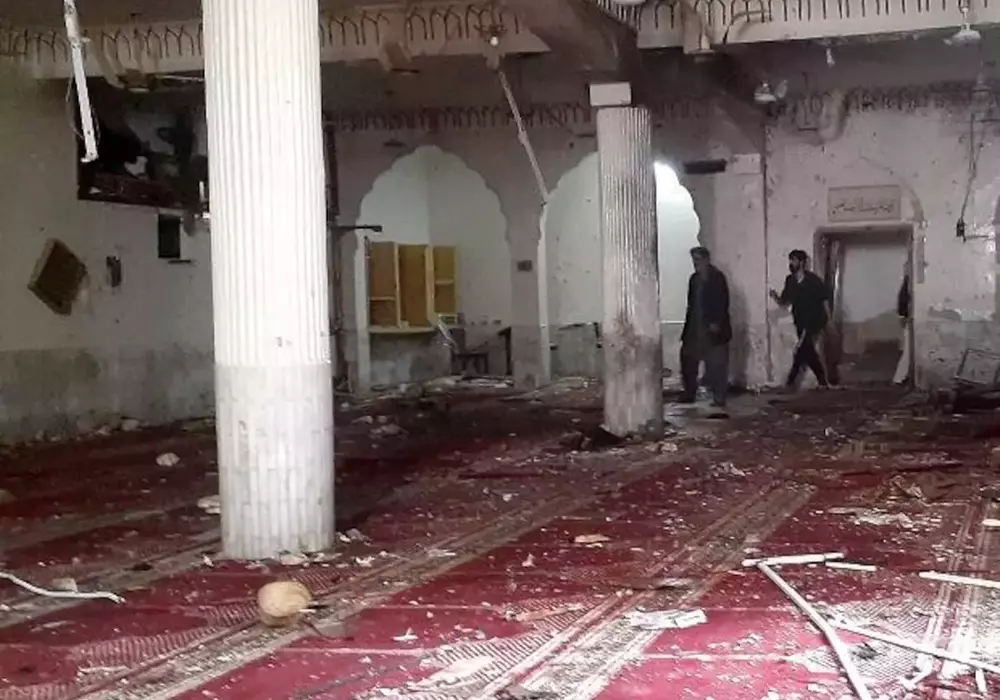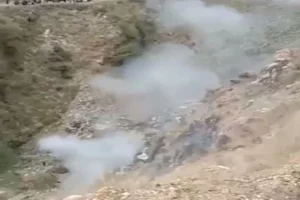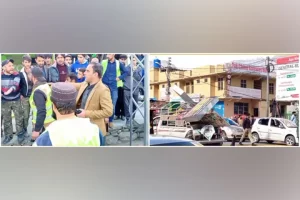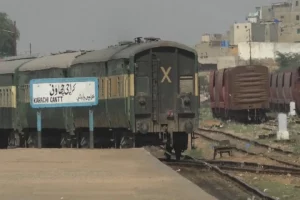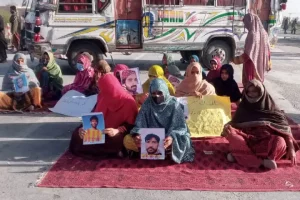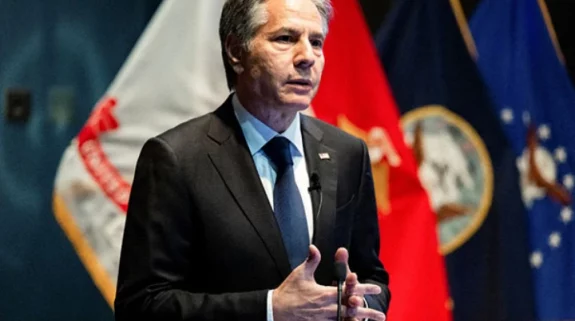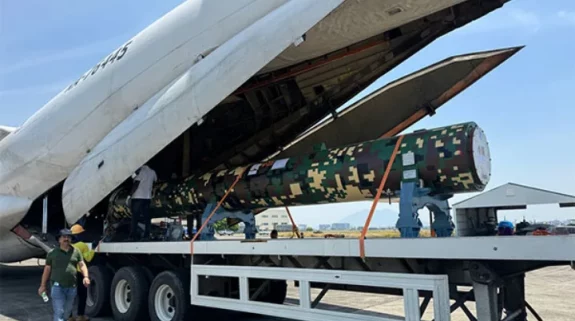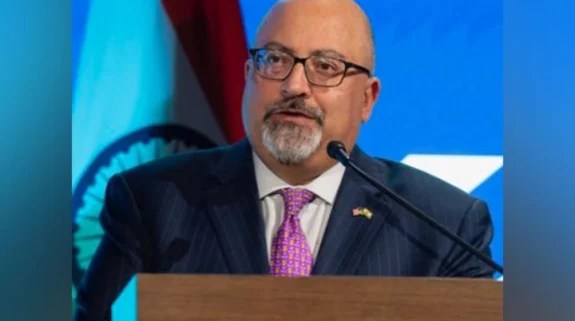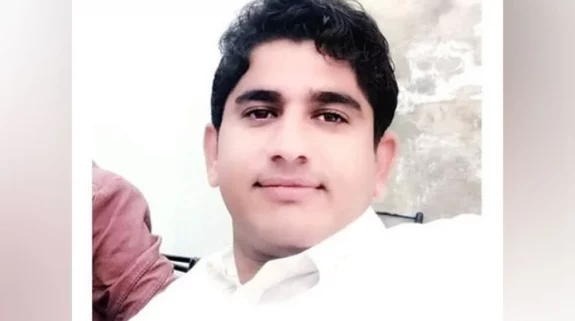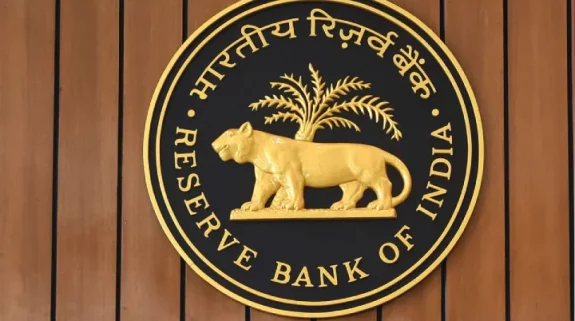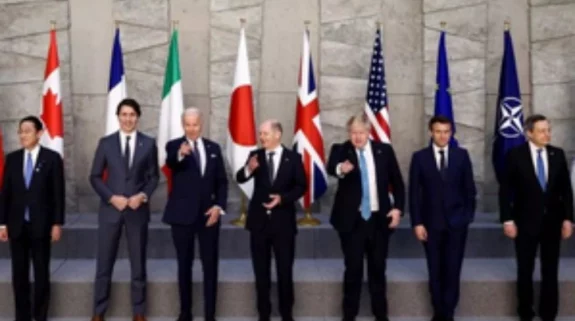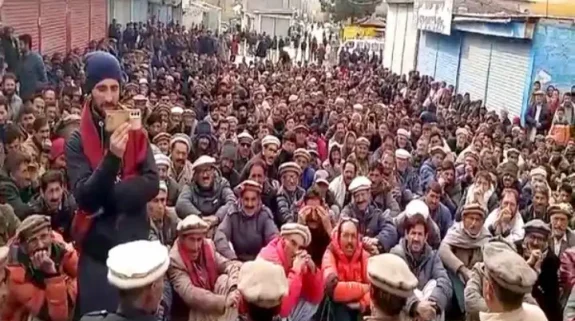At least 40 people killed and more than 60 injured when a powerful blast ripped through an imambargah in Peshawar's Kocha Risaldar area during Friday prayers. According to the Peshawar Police Commissioner a suicide bombing was the cause of the carnage.
The bombing took place in a Shia mosque, once again spotlighting, Pakistan’s sectarian divide.
“Two attackers tried to enter the mosque. The police officers present on duty were fired at, which resulted in the death of one cop, while the other was seriously injured.The bomber struck shortly after noon in front of a mosque” the police commissioner said in his post on Twitter.
قصہ خوانی بازار کے کوچہ رسالدار شیعہ جامع مسجد میں دو حملہ آور نے گھسنے کی کوشش کی
ڈیوٹی پر موجود پولیس اہلکاروں پر فائرنگ ہوئی ہے
فائرنگ سے ایک پولیس جوان شہید جبکہ دوسرا زخمی ہوا ہے جس کی حالت تشویشناک ہے
پولیس ٹیم پر حملہ کے بعد جامع مسجد میں دھماکہ ہوا ہے
1/2 pic.twitter.com/9gwfHSsPuG
— Capital City Police Peshawar (@PeshawarCCPO) March 4, 2022
According to Geo News, an eyewitness identified a person as dressed in black as the suicide bomber, saying he entered the mosque, shot and killed the security guard first and then fired five to six bullets.
"After that, he quickly entered the [mosque's] main hall and blew himself up in front of the pulpit. Following this, there were bodies and injured people lying everywhere. The hall was filled with people; they were on the bottom and top floors; the incident took place at 12:55pm," the eyewitness told Geo News.
#Pakistan #Pashwar Blast 40 Died ,60 injured .Interior Minister Seikh Rasheed Confirm.#Peshawar #PashtunLivesMatter #peshwarBlast #talban pic.twitter.com/4zYLPDMRBl
— Dais Urdu (@daisurdu1) March 4, 2022
As footage emerged from the mosque area, a large contingent of security teams could be seen cordoning of the area. "I opened my eyes and there was dust and bodies everywhere," witness Shayan Haider told Dawn.
A retired army officer Sher Ali who had been inside the mosque at the time of the explosion was injured by flying shrapnel. He made an impassioned plea to the Pakistani government for better protection of the country’s minority Shia Muslims.
“What is our sin? What have we done? Aren’t we citizens of this country?” he told Al Jazeera
In recent months, Pakistan has experienced an increase in violence. Dozens of military personnel have been killed in scores of attacks on army outposts in the restive Khyber Pakhtunkhwa province of Pakistan.
The last month saw many terror attacks in Pakistan, primarily from the Tehrik-i-Taliban Pakistan (TTP).
So far, no group has claimed responsibility for the blast but the Pakistani Interior Minister Sheikh Rashid was quick to point towards the “external” forces.
“External forces are actively trying to destabilise Pakistan”, he told the media.
These blasts have taken place when the Australia cricket team is in the country after 24 years. Last year, New Zealand pulled out its men’s team hours before the first One-day International, with the New Zealand Cricket (NZC) CEO David White saying that there was a “specific and credible threat” to the security of the players.
Interestingly, these blasts have taken place when the Financial Action Task Force (FATF) – global anti-money laundering watchdog is going to decide on Friday on whether Pakistan would go down in “black list or stay on its “grey list” owing to non-compliance in the review of money laundering and funding terrorist activities.
Also Read : Baloch resistance sends blunt message to Pakistan by attacking trucks—stop exploiting our natural resources






